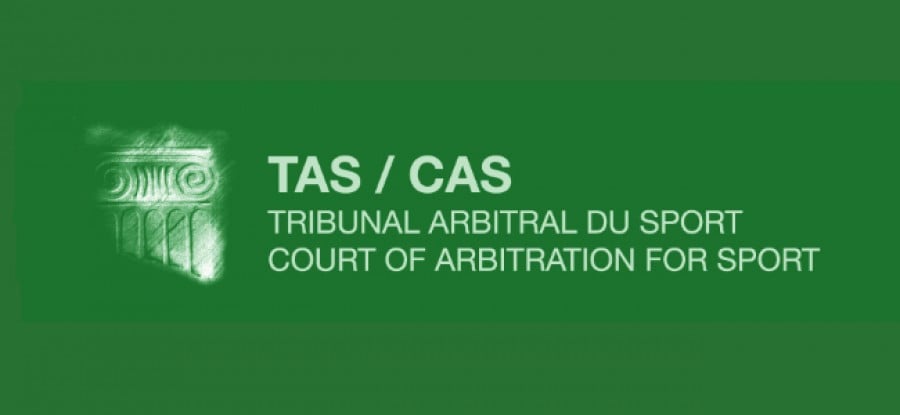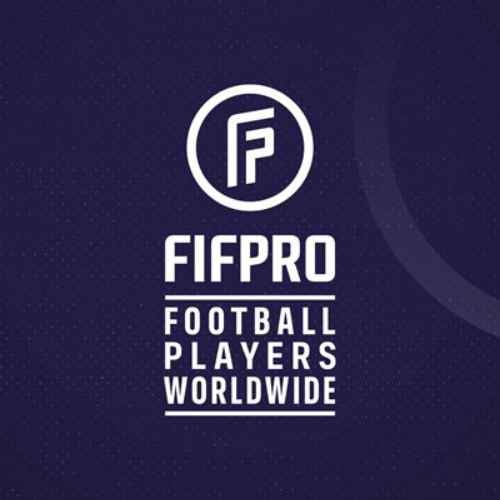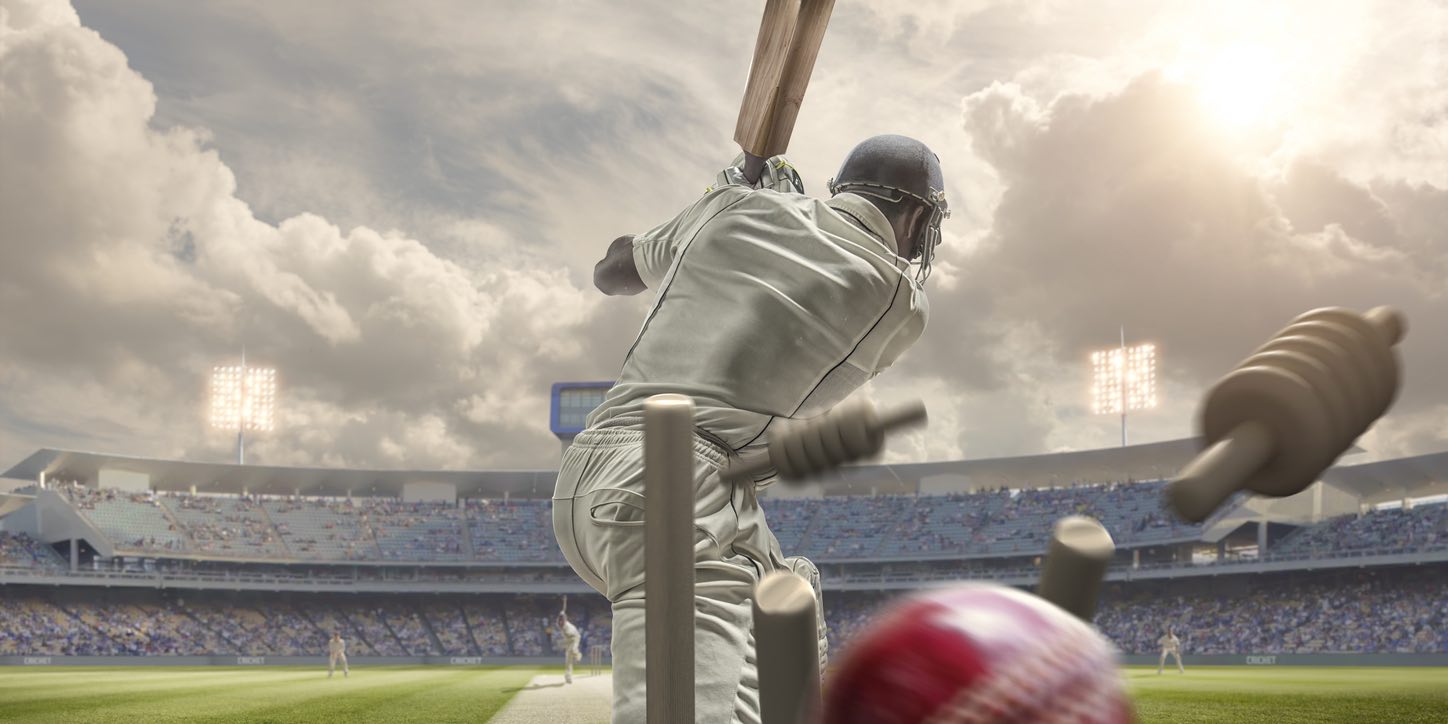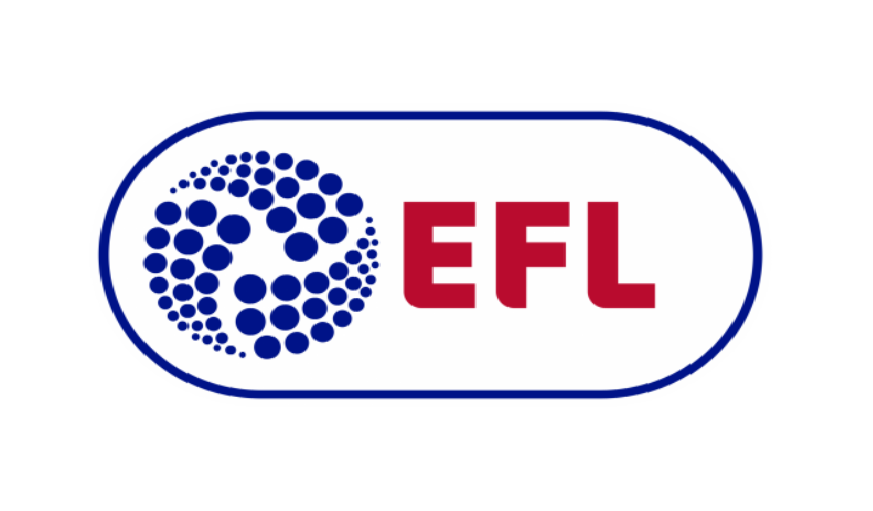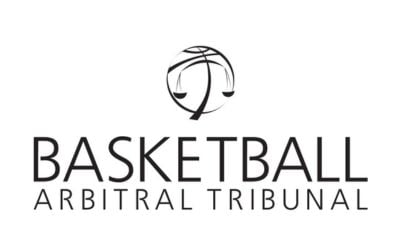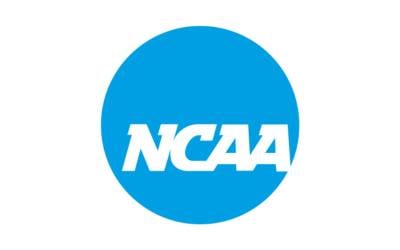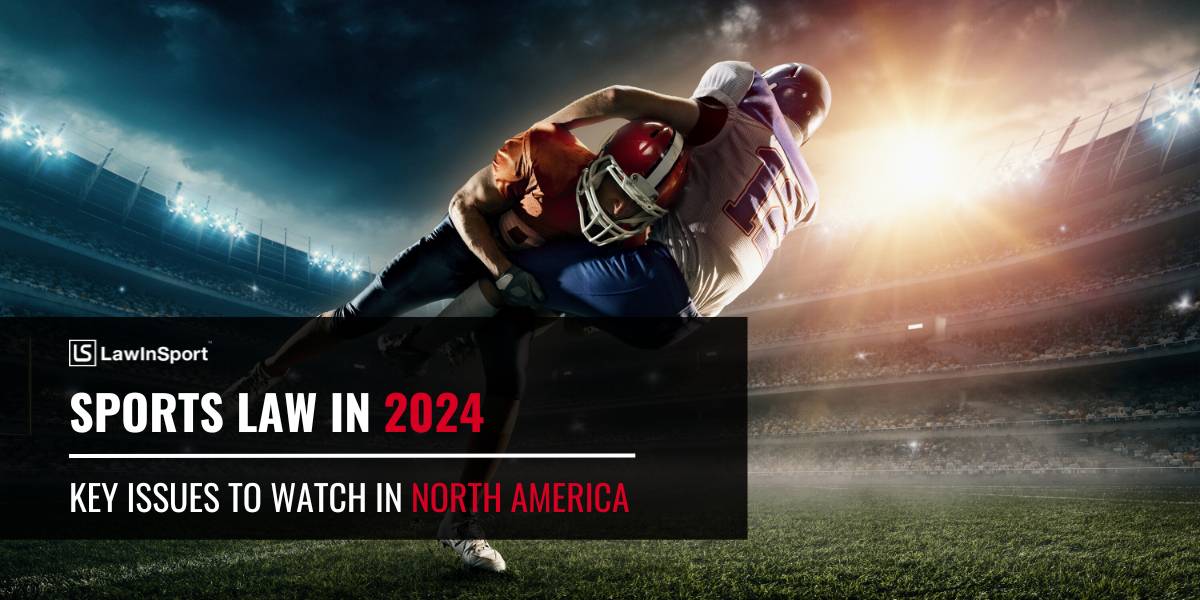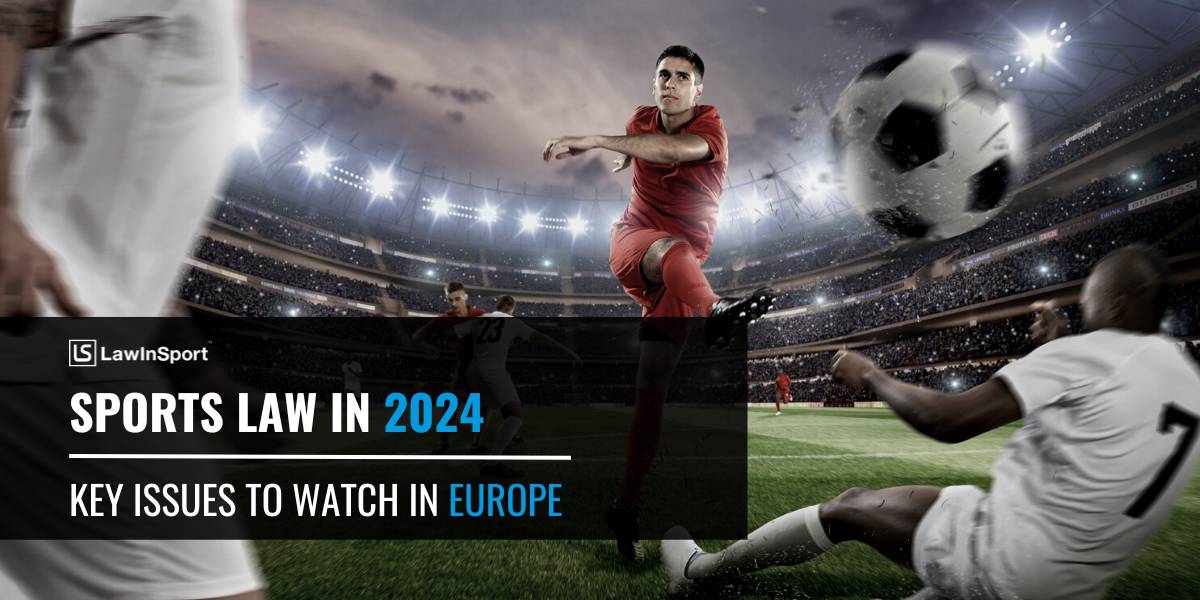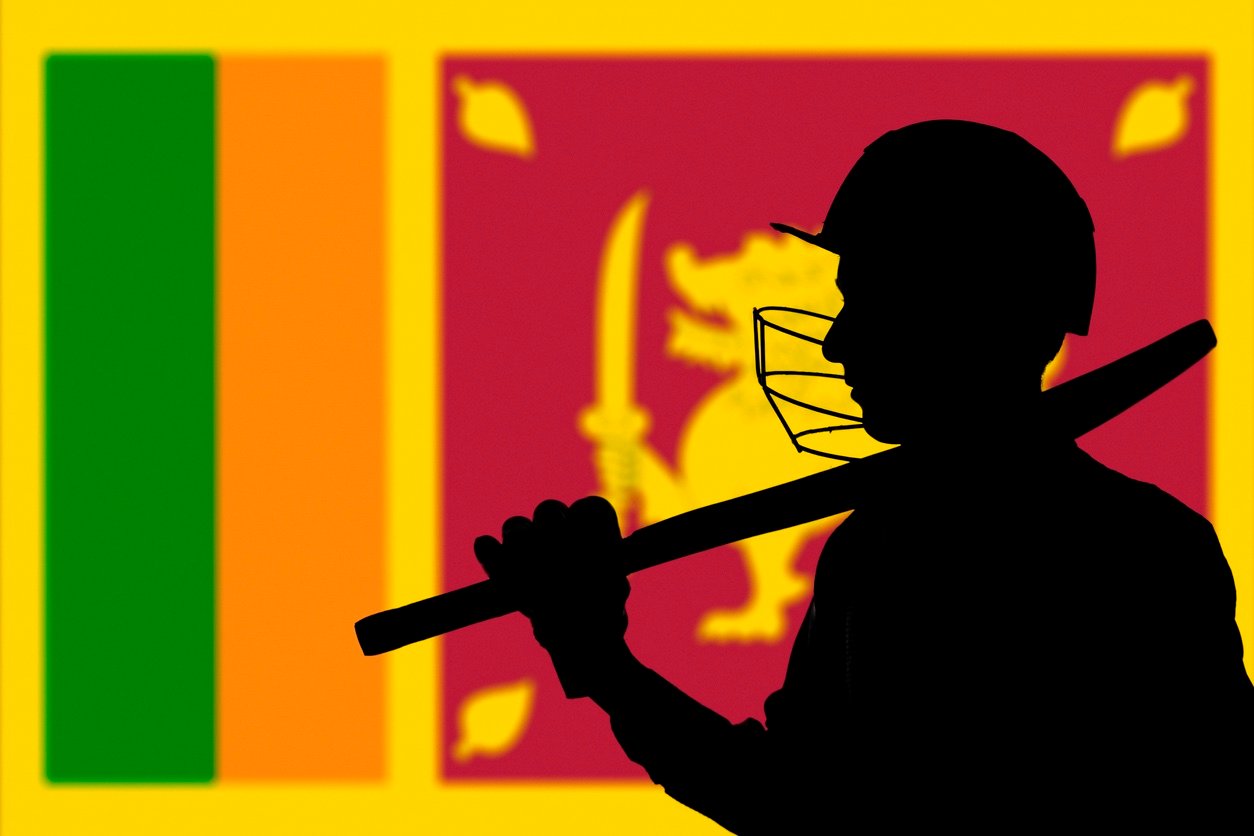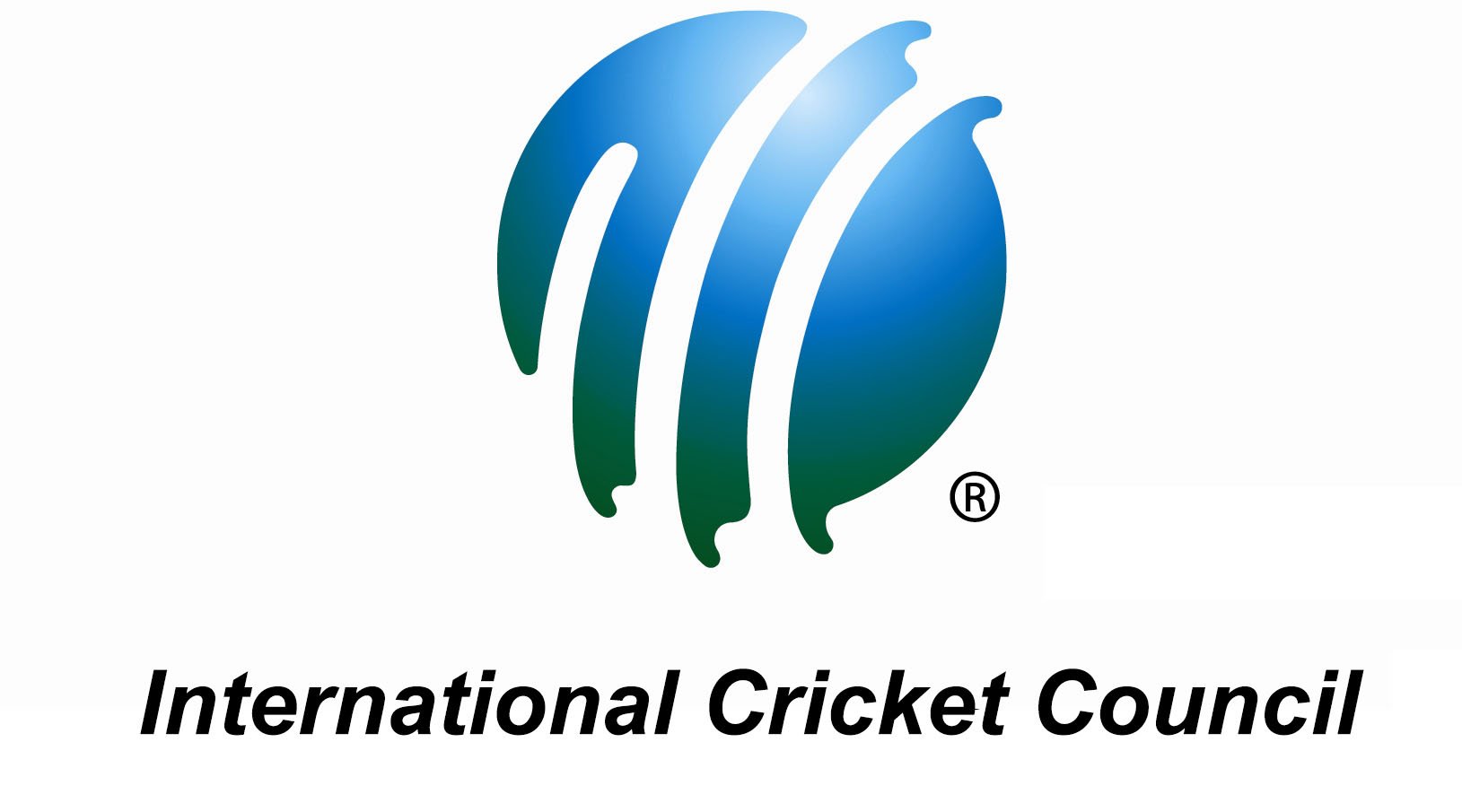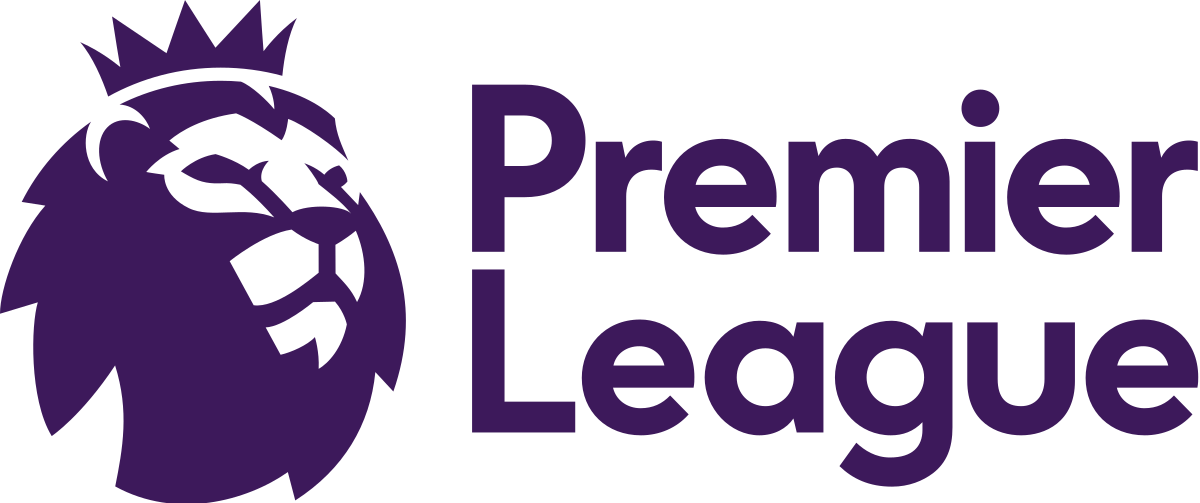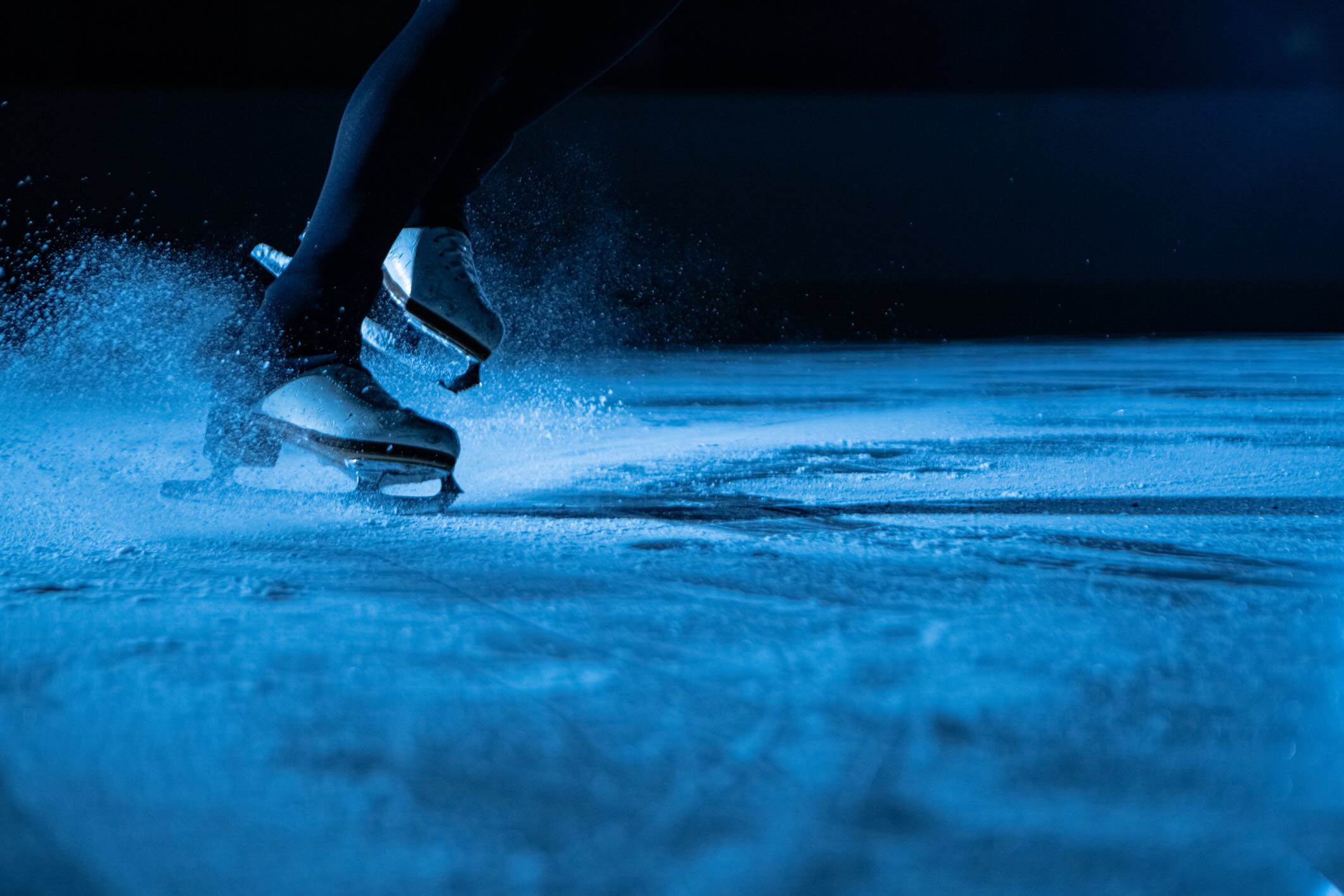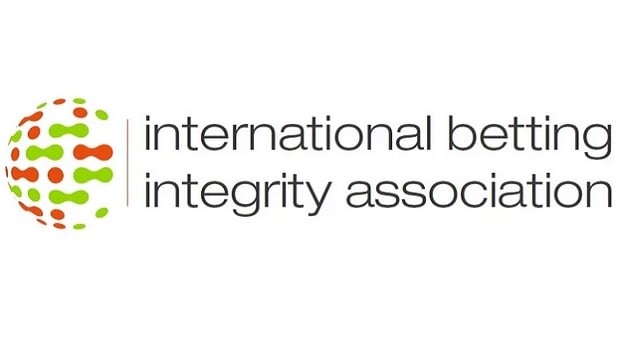The Court of Arbitration for Sport (CAS) has registered the following appeals further to the announcement made by the International Skating Union (ISU) on 30 January 2024 by which the final standings for the Team Event in figure skating at the Olympic Winter Games Beijing 2022 were adjusted following the disqualification of the skater Kamila Valieva, a member of the Russian team:
CAS 2024/A/10354 Madeline Schizas, Piper Gilles, Paul Poirier, Kirsten Moore-Towers, Michael Marinaro, Eric Radford, Vanessa James and Roman Sadovsky, and, Skate Canada, and Canadian Olympic Committee (COC) v. International Skating Union (ISU), and, International Olympic Committee (IOC), and Russian Olympic Committee (ROC), and Figure Skating Federation of Russia, and, Aleksandr Galliamov, Victoria Sinitsina, Anastasia Mishina, Nikita Katsalapov, Kamila Valieva and Mark Kondratiuk
The Canadian Appellants in this appeal seek a ruling from CAS ordering the ISU to re-rank the figure skating Team Event at the 2022 Beijing Olympic Winter Games as follows:
i. United States of America: 67 points;
ii. Japan: 65 points;
iii. Canada: 55 points;
iv. ROC: 54 points;
v. People’s Republic of China: 52 points.
The Appellants further request that medals be awarded by the IOC, as follows:
i. Gold medal: United States of America;
ii. Silver medal: Japan;
iii. Bronze medal: Canada.
CAS 2024/A/10355 Russian Olympic Committee (ROC) v. International Skating Union (ISU)
CAS 2024/A/10360 Figure Skating Federation of Russia v. International Skating Union (ISU)
The Appellants in these separate appeals both seek a ruling from CAS ordering the ISU to re-rank the figure skating Team Event at the 2022 Beijing Olympic Winter Games as follows:
(l) ROC - Gold medal;
(2) United States of America - Silver medal;
(3) Japan - Bronze medal.
CAS 2024/A/10356 Aleksandr Galliamov, Nikita Katsalapov, Mark Kondratiuk, Anastasia Mishina, Victoria Sinitsina and Kamila Valieva v. International Skating Union (ISU)
The Appellants in this appeal are the athletes of the ROC figure skating team at the 2022 Beijing Olympic Winter Games who seek a ruling from CAS ordering the ISU to re-rank the figure skating Team Event at the 2022 Beijing Olympic Winter Games with the ROC team in first place and with the gold medal being awarded to the ROC athletes.
All four CAS arbitration procedures have just commenced. Given the early stage of the proceedings, no indication can be given as to when a hearing may take place, if any.
- The report has been produced in collaboration with leading sporting intelligence agency Twenty First Group (TFG) and represents the most comprehensive public analysis of the AFC Champions League
- The analysis, which contains extensive data and feedback from players and clubs, weighs the costs and benefits for clubs and players participating in the AFC-organised competition
- With a new competition format introduced from next season, the AFC Champions League Elite, the report suggests a new partnership between the players, clubs and Asia’s football governing body will deliver a sustainable model for all stakeholders
A new report from FIFPRO Asia/Oceania analysing the Asian Football Confederation’s (AFC) flagship club competition, the AFC Champions League (ACL), has delivered extensive insights into the experiences for players and clubs participating in the competition.
The report, undertaken in collaboration with leading sporting intelligence agency Twenty First Group (TFG), provides an evidence-based assessment of the ACL’s performance and examines the likely impact of reforms announced by the AFC for the 2024/25 season onwards.
Combining expert analysis, independent insights and direct feedback from players and participating clubs, the comprehensive report illustrates that much of the competition’s costs and burdens fall on clubs.
Extensive travel across a vast continent and mid-week matches contribute to players' already-rising workload, which in turn is impacting clubs’ domestic form, the report reveals. The financial subsidies provided to clubs by the AFC do not cover the costs clubs incur, particularly for long-haul away trips.
The report demonstrates the geographic, sporting, economic and workload challenges of the competition for players and clubs, and recommends the AFC establishes a genuine partnership that delivers a more sustainable model that rewards all stakeholders.
“This report analyses the merits and drawbacks of the current AFC Champions League based on various data and the results indicate that the merits do not outweigh the drawbacks for most players and clubs, making it an unsustainable system,” said FIFPRO Asia/Oceania Chairperson Takuya Yamazaki.
“However, this does not mean that the future of football in Asia is bleak. On the contrary, we believe that this economically significant region can lead a discussion for truly sustainable competition formats.”
Jerome Perlemuter, General Secretary of World Leagues Forum, which represents professional football leagues on a global level, said collaboration between all stakeholders in the Asian region would help shape and deliver sustainable competitions.
"FIFPRO’s contribution to shaping the future of Asian continental competitions is most welcome," Perlemuter said. "Sustainable football development requires confederations, leagues and players to work together with a common objective to shape high potential continental competitions in a consistent global calendar. In this context, it is important to consider economic, geographical and cultural specificities. We look forward to continuing these discussions with FIFPRO and all stakeholders."
The AFC has announced significant reforms to the competition, which will be relaunched as the AFC Champions League Elite from the 2024/25 season. This includes major changes to the number of teams, the structure of play and the hosting arrangements for the final rounds.
The AFC Champions League Elite kicks off with the preliminary rounds in July 2024, while the league stage gets under way in September. The AFC has announced increased prize money for the two finalists and tweaks to other regulations, though full details have not yet been released.
To download the report, see here.
- Romanian Football Federation (FRF) abolishes rule that requires minor players to sign with team that trained them
- The nation’s player union AFAN welcomes the "historic win"
- Minor players in Romania will finally enjoy freedom of movement and can negotiate fair contract, with rule coming into effect from 1 July 2024
Young players in Romania can now decide which club they will sign their first contract with, after player union AFAN convinced the Romanian Football Federation (FRF) to abolish a rule that 16- and 19-year-old players are required to sign a new contract with the club that trained them. The change will come into effect from 1 July 2024.
"This is a historic win," said AFAN President Emilian Hulubei. "This rule was in place when I was a youth player," the 45-year-old added.
The rule limited players’ freedom of movement and right to negotiate fair contract terms. Players also had to accept what the club offered them.
Sixteen-year-old players had to sign a three-year contract with a minimum salary of 800 lei (approximately USD 175) and if their club offered them a new contract before they turned 19, they had to accept it as long as the minimum salary was equal to a certain amount: USD 550 for first division players, USD 440 for second division players and USD 330 for third division players.
"When players refused to sign the contract, they risked a two-year suspension and a financial penalty," said Hulubei.
Because of this rule, clubs could retain youth players against their will and then try to release them against a transfer fee payment. "Clubs didn’t care about the players’ careers," Hulubei said. "Players at smaller clubs could not move to better teams because bigger clubs were not always willing to pay transfer fees. Unfortunately, too many players left football because of this."
The player union had been fighting this practice for years. "When I started working at AFAN in 2007, we were already trying to abolish this rule," said Hulubei. "We started many procedures against clubs. We even tried to have this practice banned by labour law, but five years on the law is still pending in parliament."
Starting last summer, the player union held various discussions with the football federation to change this regulation. In December both parties reached an agreement, which was accepted by the federation’s executive committee in late January.
"I think the FRF and the clubs understood that this rule was no longer sustainable when two 16-year-old players who had been suspended for two years after refusing to sign a contract with the club that trained them turned to CAS being supported by AFAN and FIFPRO," Hulubei said. "Even though the case is still pending, the FRF and the club already annulled the suspension. However, the players have suffered losses that need to be compensated which explains why AFAN and FIFPRO keep supporting them in their appeal."
Hulubei concluded: "The FRF and the clubs must have realised that we can be successful at CAS, which will have financial consequences for them as they risk having to pay compensation and the costs for the procedure. If we win, we could bring many more cases to CAS, which could prove very costly for the clubs. I think this helped them realise that they should better abolish this rule. Now, young players finally have the freedom to find the best opportunity for their career."
Published Friday, 09 February 2024.
TO THE MEMBER ASSOCIATIONS OF FIFA
Circular no. 1877
Zurich, 8 February 2024
FIFA Integrity Summit 2024
Dear Sir or Madam,
As per the FIFA Statutes, one of FIFA’s key objectives is to promote integrity and prevent practices, such as match manipulation, that might jeopardise the integrity of matches, competitions, players, officials and member associations, or give rise to abuse of association football.
FIFA remains steadfast in the fight against match manipulation through the implementation of integrity initiatives, including the establishment of dedicated integrity educational programmes. In this regard, and in line with our commitment to promoting and protecting the integrity of football worldwide, we are delighted to announce that the first FIFA Integrity Summit will be held in Singapore on 4 and 5 April 2024.
The FIFA Integrity Summit aims to bring together the integrity officers of all 211 FIFA member associations and of the six confederations, with the primary goal of collaboratively tackling the pressing issue of match manipulation and formulating effective measures to combat it. This summit will serve as a crucial platform for engaging in profound discussions on the best practices and strategic approaches to combating match manipulation. For more information on the FIFA Integrity Summit, please consult the brochure attached to this circular.
FIFA hereby invites all member associations and confederations to nominate one integrity officer (or one official responsible for integrity matters within their association) to participate in the upcoming FIFA Integrity Summit. In order to ensure that the entire community of integrity officers can participate in this event in person, FIFA will cover the travel and accommodation expenses of this person.
Integrity officers are invited to complete the registration process by filling out the registration form available under the following link.
Registration will be open until 25 February 2024.
If you have any questions, please do not hesitate to contact Yazid Zakaria, Integrity Manager, at This email address is being protected from spambots. You need JavaScript enabled to view it..
We look forward to your feedback and to working closely with you to protect the integrity of football.
Yours faithfully,
FÉDÉRATION INTERNATIONALE
DE FOOTBALL ASSOCIATION
Huddersfield Town’s Kian Harratt has been suspended for four months and fined £3,200 following breaches of The FA’s Betting Rules.
It was alleged that the forward had breached FA Rule E8.1 by placing 484 bets on football matches between 30 June 2020 and 3 June 2023, and he subsequently admitted to this charge.
An independent Regulatory Commission imposed his sanctions after a hearing, and its written reasons for them can be seen here.
Fulham FC’s manager Marco Silva has been fined £80,000 and warned as to his future conduct for a breach of FA Rule E3 following their Premier League game against Newcastle United FC on Saturday 16 December 2023.
Mr Silva admitted that his comments in the post-match media interviews following the fixture, constitute improper conduct in that they imply bias and/or question the integrity of, and/or are insulting towards the match official (Referee) and/or the Video Assistant Referee, and/or bring the game into disrepute. The sanction was imposed by an independent Regulatory Commission.
The full decision can be viewed here.
In Autumn 2023, the EFL issued Swindon Town with a financial penalty of £2,000 alongside a three-transfer window fee restriction as a result of the Club accumulating 30 days or more of late payments in the current 12-month period (1 July 2023 to 30 June 2024).
As permitted by EFL Regulations, the Club opted to appeal the both the fine and fee restriction on the basis that the sanction was disproportionate to the offence committed by the Club. The matter was referred to an independent Disciplinary Commission.
On review of the case, the Commission has determined that the three-transfer window fee restriction should be reduced to two with the second window (August 2024) suspended and triggered upon a further breach. The Club is still required to pay the £2,000 fine.
The Commission’s decision can be viewed here.
Today, FIFA has published the second edition of the CAS & Football Annual Report, a detailed document reflecting the activities of the Court of Arbitration for Sport (CAS) in football-related matters at the global level in 2023, and, particularly, in relation to appeals filed against FIFA decisions last year.
Article 57 of the FIFA Statutes recognises the jurisdiction of CAS to deal with appeals against final decisions passed by FIFA’s legal bodies. This provision gives football stakeholders (e.g. member associations, confederations, players, clubs, officials, coaches, agents, etc.) the possibility to have resolutions of FIFA, member associations, confederations and leagues reviewed by an independent arbitration tribunal.
As part of the constant efforts to increase the transparency of FIFA’s activities, the CAS & Football Annual Report 2023CAS & Football Annual Report 2023provides relevant information and statistics related to the numerous appeals that have been filed before CAS in football matters worldwide. It additionally offers a detailed description of the most relevant case law from CAS and the Swiss Federal Tribunal notified last year, as well as other useful information related to CAS’ activity in connection with football.
The CAS & Football Annual Report 2023 is available here or can be downloaded from legal.fifa.com.
The FIFA Appeal Committee has rendered its decision on the appeal lodged by Mr Luis Rubiales, the former president of the Spanish Football Association (RFEF), against the decision issued by the FIFA Disciplinary Committee banning him from all football-related activities at national and international levels for three years.
After analysing the submissions presented to it and conducting a hearing, the Appeal Committee decided to dismiss the appeal, and to confirm the sanction imposed upon Mr Rubiales. Amongst other considerations, the Appeal Committee was comfortably satisfied that Mr Rubiales behaved in a manner contrary to the principles enshrined under article 13 of the FIFA Disciplinary Code during and after the final of the FIFA Women’s World Cup™.
The findings of the decision passed by the Appeal Committee were notified today to Mr Rubiales. In accordance with the relevant provisions of the FIFA Disciplinary Code, he has ten days in which to request a motivated decision, which, if requested, will subsequently be published on legal.fifa.com. The decision remains subject to a possible appeal before the Court of Arbitration for Sport.
FIFA reiterates its absolute commitment to respecting and protecting the integrity of all people and ensuring that the basic rules of decent conduct are upheld.
Published Friday, 26 January 2024.
-
FIFA Council approves the National Dispute Resolution Chamber Recognition Principles, incorporating the new National Dispute Resolution Chamber Standard Regulations
-
Landmark modernisation of the regulatory framework for national dispute resolution chambers, which was unchanged for almost two decades
-
Revised framework to provide clarity and legal certainty
FIFA has reached a key milestone in the modernisation of the regulatory framework for national dispute resolution chambers (NDRCs) following the approval by the FIFA Council in December 2023 of the National Dispute Resolution Chamber Recognition Principles, which incorporate the new National Dispute Resolution Chamber Standard Regulations.
The regulatory framework for NDRCs was unchanged for almost two decades, and it thus became increasingly evident that it no longer served the current needs of all football stakeholders.
This new regulatory framework for NDRCs has been thoroughly discussed with stakeholders from the professional game, whose expertise and commitment have been pivotal in the adaptation of the relevant framework.
The key objectives of the revised framework are to provide clarity and the necessary legal certainty with regard to jurisdiction, structure, applicable requirements and potential formal and permanent recognition by FIFA of existing NDRCs.
The new relevant regulatory framework consists of the National Dispute Resolution Chamber Recognition Principles, which establish, inter alia, the required standards for a national dispute resolution system to be recognised by FIFA and the revised National Dispute Resolution Chamber Standard Regulations, which are designed to assist member associations with the establishment of procedural rules to govern the organisation, composition and functions of an NDRC.
FIFA will continue improving the FIFA regulations in line with the Strategic Objectives for the Global Game: 2023-2027.
The National Dispute Resolution Chamber Recognition Principles and the accompanying Annexe (National Dispute Resolution Chamber Standard Regulations), the revised edition of the Regulations on the Status and Transfer of Players, as well as the Explanatory Notes on the New Regulatory Framework for National Dispute Resolution Chambers are available on legal.fifa.com.
National Dispute Resolution Chamber Recognition Principles
Explanatory Notes on the New Regulatory Framework for National Dispute Resolution Chambers
Regulations on the Status and Transfer of Players
The Basketball Arbitral Tribunal (“BAT”) hereby informs its users that a new Payment Order Procedure (“POP”) will be introduced with the new edition of the BAT Arbitration Rules (“BAT Rules”), which come into effect as of 1 February 2024.
1) What is the POP and why is it introduced?
The POP is comparable to default judgements before state courts (e.g. the European order for payment procedure) and is arguably the first of its kind in the context of international (sports) arbitration. In a nutshell, a Claimant may request the BAT to issue a payment order for a specific monetary claim against a Respondent. The BAT will issue such payment order without examining the merits of the claim if some basic requirements are fulfilled and the Respondent does not object to the issuance of the payment order.
With the POP, the BAT addresses the feedback received by the BAT user community in recent years, in particular at the BAT User Conference in November 2022. That feedback underlined the existence of a significant demand for a mechanism that provides access to the BAT for Claimants in low value disputes who do not have the financial means to afford the arbitration costs involved in a regular BAT arbitration. At the same time, the POP is a response to the fact that in a significant number of BAT proceedings, the Respondent does not participate in the arbitration.
2) Legal effects of the POP?
At the end of an uncontested POP in which all necessary requirements are fulfilled, the BAT issues the Final Payment Order (“FPO”), which shall have the effects of a final and binding arbitral award between the parties. In addition, the FPO qualifies as “decision” in the terms of Article 3-335 of the FIBA Internal Regulations. Accordingly, if the Respondent fails to honour the FPO, the Claimant may request FIBA to initiate disciplinary proceedings.
3) When does the POP apply?
A Claimant may only make use of the POP if the parties have agreed on the application of the POP to their dispute. Therefore, parties wishing to have this option for potential future financial disputes are advised to include into their contract the new alternative BAT clause provided under Article 0.3 of the BAT Rules.
In addition, the POP applies only if the claim…
- … is of a monetary nature and does not exceed a sum in dispute of EUR 15,000.00,
- … is filed by a single individual or legal entity as claimant,
- … is filed against a single legal entity as respondent, and
- … does not bundle multiple claims deriving from different legal relationships (e.g. claims by an agent against a club for agent fees payable in relation to different player transfers).
4) How does the POP work?
The new POP allows creditors to file a payment order request (“POR”) instead of initiating a regular BAT arbitration. To submit a POR, the Claimant must enter the required information on the Claimant, the Respondent and the claim into the online form available under https://bat-payment-order.martens.legal/ and upload the relevant documents.
Along with the POR, the Claimant must pay a non-reimbursable processing fee of EUR 1,000.00 into the BAT bank account. No further payments by the Claimant are required for the POP. In particular, no advance on costs will need to be paid for the POP. Thus, the costs involved in the POP are significantly lower than the costs required for a BAT arbitration.
The POR is reviewed by the BAT (Vice-)President, who issues a Provisional Payment Order (“PPO”) if the requirements mentioned in section 3) above are met, the claim does not violate public policy and the utilization of the POP is not abusive.
The PPO is delivered both to the Claimant and the Respondent and the latter is provided with the opportunity to file an objection against the PPO within 14 days after receipt of the PPO.
If no objection is filed within this time limit and/or the Respondent fails to pay the applicable handling fee of EUR 1,000.00 for the objection, the BAT (Vice-) President, upon the Claimant’s request, will issue a FPO provided that the relevant requirements are still met (e.g. no payment of the claim in the meantime).
If the Respondent objects and pays the handling fee of EUR 1,000.00 in time, the Claimant and the Respondent will be requested to each pay a share of an advance on costs fixed by the BAT Secretariat in anticipation of a regular BAT arbitration procedure. Once each party has paid its share, the Claimant is required to file a Request for Arbitration and, thereafter, the PPO will lose effect and a regular BAT arbitration shall begin.
Any questions?
The new BAT Rules including the provisions on the POP are available on www.fiba.com/bat/process, both as a clean document and as a marked-up version showing all changes compared to the 2022 edition. In addition, the BAT Secretariat is very happy to answer any questions you may have. Please do not hesitate to contact us by e-mail (This email address is being protected from spambots. You need JavaScript enabled to view it.) or telephone (+49 89 452 44 22 15).
As Reading FC supporters are only too aware, it has in recent months become increasingly clear that Mr Dai Yongge is no longer in a position - or does not have the motivation - to support the Club financially as he did following the change of control in 2017.
In November 2023, the EFL called for the disqualification of Mr Dai following the failure to fund the deposit account to cover player and staff salaries following repeated breaches of EFL Regulations. This was ultimately rejected by an Independent Disciplinary Commission and a financial sanction was imposed instead.
The EFL has now received confirmation that Mr Dai did not meet last Friday’s latest deadline to fund the deposit account as ordered, meaning he has been in default for nearly four months. As a result – and as per the terms of the 15 December decision - a further £50,000 fine has now been imposed, taking the total to £80,000.
His continued failings mean that once again the Club's hardworking staff have no reassurance as to payment of wages and demonstrates a clear disregard for his obligations as a director of the Club.
In respect of this issue, the League will now consider all available options it has under the Regulations and will have no hesitation in bringing further charges against Mr Dai.
In the meantime, and for the sake of the future of Reading FC, its staff, supporters, and local community we urge Mr Dai either to fund the Club adequately or to make immediate arrangements to sell his majority shareholding to appropriate new owners so everyone can move forward with renewed optimism.
For our part, we will work with Mr Dai, his team, and the Club plus any potential purchaser to navigate and meet the requirements of the Regulations as quickly as is physically possible and bring an end to this difficult period for all parties.
What followed the events at the end of last week were the unfortunate scenes on Saturday afternoon that led to the abandonment of the fixture versus Port Vale, and further demonstrated the impact the current situation is having on everyone associated with the Club.
However, entering the field of play is a criminal offence and puts the safety of all participants at risk. The EFL Board will discuss events at Saturday’s match during its meeting later this week as it has a responsibility to the League’s member clubs and the competition to ensure all 72 Clubs meet the requirements of the rules as previously agreed by EFL Clubs.
Finally, the League has been in regular dialogue with the Supporters Trust at Reading (STAR) in recent months and has always made – and will continue to do so – itself available to recognised supporters’ groups to discuss challenging situations and, regarding current matters involving Reading, has arranged to meet with representatives of a number of groups in the next 24 hours.
Published Friday, 12 January 2024.
-
Platform publicly available on FIFA.com
-
Clubs subject to registration bans prevented from registering new players
In line with its continued efforts to promote transparency and maintain full disclosure in relation to the activities of the FIFA judicial bodies, FIFA has launched a digital tool that lists the clubs subject to registration bans.
Based on FIFA’s legal framework, a registration ban is one of the potential disciplinary measures that may be imposed on clubs by the FIFA judicial bodies or by the Football Tribunal. Once a registration ban has been imposed, the club in question will be prevented from registering new players, either nationally or internationally and whether as amateurs or as professionals, for the full duration of the measure. The club will therefore only be able to register new players again after serving the ban in its entirety or in the event that the ban is lifted by the FIFA administration (usually upon the completion of one or more specific actions by the club).
The primary objective of this new tool is to provide stakeholders, including players and clubs, as well as the general public, with an overview of all clubs currently prevented from registering new players.
The digital tool, which can be accessed here and on legal.fifa.com, will be regularly updated in order to reflect the situation of the clubs subject to registration bans imposed by FIFA.
TO THE MEMBER ASSOCIATIONS OF FIFA
Circular no. 1874
Zurich, 10 January 2024
FIFA Football Agent Regulations: licensing updates and information on the Agents Chamber of the FIFA Football Tribunal
Dear Sir or Madam,
Firstly, we would like to thank you for all your efforts and hard work on the implementation of the FIFA Football Agent Regulations (FFAR), including the organisation of the first two editions of the FIFA Football Agent exam during the past year 2023 (hereinafter the “Exam”).
With these efforts, the transition phase towards the full implementation of the FFAR has been successfully completed, with more than 5,000 Football Agent licences having been granted worldwide, national football agent regulations being approved by member associations and the members of the Agents Chamber of the FIFA Football Tribunal appointed.
We wish to provide you hereinafter with some licensing updates and information on the Agents Chamber.
1. Licensing of Football Agents
In accordance with Enclosure 2 to circular no. 1827, we are providing you with additional information on the licensing of Football Agents for the year 2024.
We kindly remind you that only individuals that have been granted a Football Agent licence by FIFA pursuant to the FFAR can provide Football Agent Services, as defined in the FFAR and the applicable national football agent regulations.
Any breaches of the FFAR, including evidence of non-licensed activity of individuals or companies, can be reported on the FIFA Reporting Portal.
Exam licensing path (art. 4 of the FFAR) We kindly inform you of the dates have been set for the next exam, due to take place in 2024.
FIFA Football Agent exam Application period 9 January to 31 March 2024 Exam date 22 May 2024
We kindly remind you that all applications are to be submitted on the FIFA Agent Platform (hereinafter the “Platform”) by interested candidates and will be regularly reviewed by member associations through their user accounts registered on the Platform. For the avoidance of any doubt, all deadlines for the submission of applications on the Platform correspond to Central European Time (CET).
After reviewing feedback received from the members of the FIFA Football Agent Working Group (“FAWG”) and from candidates, the FIFA administration hereby kindly reminds all member associations that exam fees charged by member associations to candidates for organising the Exam should be exclusively used to cover the costs of organising and holding the exam. In that regard, the FIFA administration recommends that member associations ensure that the exam fee does not exceed the amount of USD 600 (or equivalent).
Furthermore, the applicable exam rules and study materials will be published on the Platform and the FIFA website in January 2024.
Reduction of licence fee for continuous licence holders
Following consultations with the members of the FAWG, as from 1 October 2024, the licence fee paid to FIFA for all Football Agent licence renewals will be reduced to USD 300 for each subsequent licensing period. Those individuals that obtain their Football Agent licence for the first time will pay the full amount of USD 600 for the first licensing period, with subsequent yearly payments being reduced to USD 300.
By way of example, if a candidate passes the exam in May 2024, they need to pay the annual fee of USD 600 within 90 days. Then, before 1 October, that same Football Agent will pay USD 300 for each consecutive licence year.
2. FIFA Football Tribunal: Agents Chamber
Following the creation of the Agents Chamber of the FIFA Football Tribunal, FIFA informs that the current list of judges representing different stakeholders, including the recent appointment of the Chairperson and Deputy chairperson, can be found on legal.fifa.com.
Please do not hesitate to contact Luís Villas-Boas Pires (head of agents) at This email address is being protected from spambots. You need JavaScript enabled to view it. should you have any questions in this regard.
We thank you for your attention and for ensuring that your affiliated clubs and relevant stakeholders are informed accordingly.
Yours faithfully,
FÉDÉRATION INTERNATIONALE
DE FOOTBALL ASSOCIATION
During its meeting Wednesday, the Division I Council introduced several proposals into the legislative cycle for potential votes in June.
Among the measures, the council introduced a proposal brought forward by the Strategic Vision and Planning Committee that would remove cannabinoids from the list of substances included in drug testing at NCAA championships. The proposal follows a recommendation from the Committee on Competitive Safeguards and Medical Aspects of Sports, which hosted a 2022 summit — including doctors, substance misuse experts and representatives from NCAA schools — that focused on cannabinoids in college athletics.
"Cannabis is not a performance-enhancing drug, and we determined that the drug testing conducted at NCAA championships should focus on substances that impact competitive outcomes," said Pat Chun, athletics director at Washington State and chair of the Strategic Vision and Planning Committee. "To be clear, this does not mean that NCAA members condone or promote use of cannabinoids. However, rather than focus on testing and subsequently penalizing student-athletes who use cannabis, NCAA efforts should focus on a harm reduction strategy, similar to substances like alcohol."
If adopted in June, the proposal would apply retroactively to any penalty associated with a previous positive test.
Additional proposals introduced for a vote in June would:
- Permit noncoaching, sport-specific staff members in sports other than football and men's and women's basketball to assist in drills and other limited activities during practices.
- Eliminate questionnaires sent to prospects prior to the first allowable date for recruiting communications.
Football recruiting rules
The council also heard an update from the Football Bowl Subdivision and Football Championship Division Oversight Committees, which voted to limit the number of official visits a school can provide to prospects to 70 each year, including eliminating exceptions for head coach changes and unused visits. The FBS Oversight Committee also voted to limit photo shoots for prospects and those accompanying them during unofficial visits.
Because the council took no action on these decisions by the oversight committees, the rules are adopted. The prohibition on photo shoots in bowl subdivision football will take effect March 1, and the limit of 70 official visits will take effect April 1.
Daniel Senda has been suspended from all football and football-related activity for four years following misconduct on a course in June 2023 in relation to two complainants.
The FA alleged that the coach’s words and/or behaviour towards Complainant A were improper and/or indecent and/or insulting contrary to FA Rule E3.1.
The FA also alleged that his words and/or behaviour towards Complainant B were improper and/or indecent and/or insulting contrary to FA Rule E3.1.
Daniel Senda subsequently admitted both of these charges. An independent Regulatory Commission imposed his sanction following a hearing and its written reasons can be seen below.
FA Spokesperson: “Women deserve to be involved in professional football without the fear of any form of abuse. This was a shocking case, and we investigated the very serious allegations as soon as we were made aware of them.
“We thank the victims for reporting the incidents to us, and supporting the investigation through to its conclusion, and we are deeply sorry that they endured such a terrible experience.
“The behaviour shown by Daniel Senda in June 2023 will not be tolerated. We will investigate all allegations of sexual assault in a football environment which are reported to us - usually working with the police, but in this case, the incidents happened overseas so were not within the jurisdiction of UK law enforcement.
“We hope that the very lengthy ban serves as a strong deterrent, and a clear signal that women in football will be supported and protected and offenders will be severely punished.”
Published Thursday, 04 January 2024.
Published Thursday, 04 January 2024.
TO THE MEMBER ASSOCIATIONS OF FIFA
Circular no. 1873
Zurich, 30 December 2023
FIFA Football Agent Regulations: update on implementation
Dear Sir or Madam,
On 16 December 2022 the FIFA Council approved the FIFA Football Agent Regulations (hereinafter the “FFAR”), which provide with a balanced and reasonable legal instrument to protect the integrity of football and the proper functioning of the football transfer system.
Subsequently, FIFA was subject to a coordinated litigation strategy, which involved agents and agents’ associations filing lawsuits against FIFA across Europe to challenge the legality of the FFAR and to delay their entry into force.
FIFA has so far prevailed in the vast majority of those disputes. Specifically, the Court of Arbitration for Sport (CAS), the court of supreme instance for sports-related disputes recognised under the FIFA Statutes, has confirmed the legality and proportionality of the FFAR. Courts and/or competition authorities in various countries have rejected several requests from agents to annul the FFAR, declare them invalid, or to delay their entry into force. Moreover, a procedure concerning the validity of the FFAR, in which different institutions have supported the FFAR, is pending before the European Court of Justice.
District Court of Dortmund (Landgericht Dortmund) case 8 O 1/23
On 24 May 2023, a preliminary injunction (the “Injunction”) against certain aspects of the FFAR rules was by the District Court of Dortmund in Germany in the procedure LG Dortmund, 8 O 1/23 (Kart).
The Injunction requests FIFA to suspend the application and enforcement of the certain provisions of the FFAR:
- The service fee cap (article 15 paragraphs 1-4)
- The rules concerning service fee payments (article 14 paragraphs 6, 8 and 11)
- The client pays rule (article 14 paragraphs 2 and 10)
- The rules regarding the timing of service fee payments (article 14 paragraphs 7 and 12)
- The prohibition of double representation (article 12 paragraphs 8-10)
- The reporting obligations (article 16 paragraphs 2 h), j), k) and 4)
- The rules regarding disclosure and publication (article 19)
- The submission rule (article 4 paragraph 2; article 16 paragraph 2 b); article 3 paragraphs 2 c) and d); article 20; and article 21)
- The rule that service fee payments must be made via the FIFA Clearing House (article 14 paragraph 13)
This Injunction is inconsistent with previous judicial decisions in other European countries, the CAS award as well as previous decisions in Germany, including from appeals courts. FIFA has therefore initiated appeal proceedings against the Injunction and an appeal decision is expected in the first semester of 2024.
In order to comply with the Injunction, FIFA will suspend the implementation of the FFAR for any transfer which has a link to the European Union. Implementing the Injunction only for transfers linked to the European Union would create a situation of unequal legal standards within the international transfer system, in particular between Europe and the rest of the world. As the world governing body of football and a prudent and responsible regulator, FIFA has a duty to prevent such uncertainty and inequality and protect competitive balance at a worldwide level.
In light of the foregoing, on 30 December 2023 the Bureau of the Council approved the worldwide temporary suspension of the FFAR rules affected by the above-mentioned German court decision, until the European Court of Justice renders a final decision in the pending procedures concerning the FFAR,
In this light, we recommend all the member associations to temporarily suspend the equivalent provisions from their national football agent regulations, unless they conflict with mandatory provisions of the law applicable in their territory.
FIFA remains convinced that the FFAR are a necessary, proportionate and fully legal regulatory step to address systemic failures within the international transfer system. Not only all football stakeholders, but also all European political authorities have confirmed the importance of such a regulatory framework.
We thank you for your attention and for ensuring that your affiliated clubs and relevant stakeholders are informed accordingly.
Yours faithfully,
FÉDÉRATION INTERNATIONALE
DE FOOTBALL ASSOCIATION
Published Thursday, 21 December 2023.
TO THE MEMBER ASSOCIATIONS OF FIFA
Circular no. 1869
Zurich, 19 December 2023
Beach Soccer Laws of the Game 2023-24
Dear Sir or Madam,
FIFA is pleased to announce that the FIFA Council has approved several updates to the Beach Soccer Laws of the Game. These encompass Beach Soccer-specific adjustments while also aligning the Laws with recent modifications introduced in football.
Enclosed, you will find both an overview of the main amendments and the complete Beach Soccer Laws of the Game 2023-24. The full Beach Soccer Laws of the Game 2023-24 is also readily accessible on FIFA.com.
If you have any inquiries or require further clarification, please don't hesitate to contact Dominic Chielens, Senior Refereeing Manager, at the FIFA Refereeing Subdivision (This email address is being protected from spambots. You need JavaScript enabled to view it.).
Yours faithfully,
FIFA
The full report can be accessed here.
In September 2023, the Reading FC owner Mr Yongge Dai was charged with misconduct after failing to comply with the order of an independent Disciplinary Commission which required him to deposit an amount equal to 125% of the Club’s forecast monthly wage bill in a designated bank account.
The matter was referred by the League to an independent Disciplinary Commission in accordance with its Regulations and at the hearing, which took place on 23 November 2023, the EFL put forward that Mr Dai should be disqualified from all football activity, including ownership and control, for a period of 12 months.
In its submissions, the EFL also made it clear that it did not feel a sporting sanction against the Club was appropriate in this case as this was direct action being taken against the owner.
On review of all the arguments, the independent Commission were ‘unimpressed’ by Mr Dai’s failure to provide detailed evidence as to the ongoing reasons for failure to pay and as to his future intentions but felt a disqualification would not achieve the immediate objective of sourcing the required funds for the deposit account.
Therefore, the Independent Commission has determined that Mr Dai be fined £20,000 with a further £50,000 suspended and to be activated on 12 January 2024 unless the required deposit is made in full. In addition, Mr Dai is required to maintain the deposit at the levels set out previously until, at the earliest, 31 August 2024.
It is clear that the Commission are critical of his handling of matters labelling it a ‘serious case ‘and ‘deliberate misconduct.’
It is hoped this latest financial sanction, and the threat of further monetary penalties will bring a resolution to the short-term issue of funding the deposit account, which in turn should provide some re-assurance to the management, staff, and players at the Club, who continue to act as outstanding ambassadors for Reading FC, despite the challenging circumstances.
The League will have no hesitation in bringing further charges against Mr Dai if he fails to comply with the Commission’s directive and is also ready to support the Club in quickly progressing a change of control at the Club once a purchaser has been identified.
The independent Disciplinary Commission’s Written Reasons can be viewed here.
The Court of Arbitration for Sport (CAS) has issued its decision in the appeal arbitration proceedings between the Russian Olympic Committee (ROC) and the International Olympic Committee (IOC) in which the ROC sought to set aside the decision rendered by the IOC Executive Board (IOC EB) on 12 October 2023 (the Challenged Decision) in which it was suspended from the IOC with immediate effect until further notice due to its decision to include as its members some regional sports organisations which are under the authority of the National Olympic Committee (NOC) of Ukraine (Donetsk, Kherson, Luhansk and Zaporizhzhia).
The CAS Panel in charge of this matter dismissed the appeal and confirmed the Challenged Decision, finding that the IOC EB did not breach the principles of legality, equality, predictability or proportionality.
The Arbitral Award issued by the CAS Panel is currently subject to a confidentiality review meaning that the parties might request that the Arbitral Award, or certain information contained in it, remain confidential. For this reason, the Arbitral Award will not be published immediately on the CAS website.
The CAS Panel’s decision is final and binding except for the parties’ right to file an appeal to the Swiss Federal Tribunal within 30 days on limited grounds.
Published Friday, 16 February 2024.
Published Friday, 09 February 2024.
Published Thursday, 08 February 2024.
- Hungarian player union HLSZ makes positive changes to standard player contract
- Two provisions removed, including possibility to unilaterally reduce salary if player is sent to second team
- Amendments a result of collaboration between European stakeholders and domestic social dialogue
Hungarian player union HLSZ actioned crucial amendments to its standard player contract that have improved the rights of professional footballers in the country.
As part of a social dialogue in Hungarian football, and after requests from HLSZ, the Hungarian Football Federation (MLSZ) decided to remove two controversial provisions from the standard player contract. One allowed clubs to unilaterally reduce a player’s salary up to 50 percent in case of relegation, while the other arranged that a club could unilaterally decide to reduce a player’s salary up to 50 percent when the club decided to send a player to the second team.
Gabor Horvath, the union’s general secretary, welcomes the revised standard player contract, which has been in force as of 1 January 2024.
“This is a very important achievement for us,” Horvath told FIFPRO. “We have often been criticised that the standard player contract in our country was not good.
"Through the years, we have tried to change this and now we can finally say that the Hungarian standard player contract is fully in compliance with the minimum requirements on standard player contracts, as laid down in the agreement signed by European stakeholders, including FIFPRO Europe, UEFA, the ECA and European Leagues.”
Article 47, which allowed clubs to unilaterally reduce players’ salary when sending them away from the first team, was very problematic, according to Horvath. “Players were told that starting tomorrow they couldn’t train with the first team anymore but would have to train with the second or third team, and that their salary was reduced by 50 percent. The clubs could simply decide this unilaterally as a sort of sanction. This could last until the end of season or could lead to a player leaving the club.”
The provision is against Hungarian labour law and against jurisprudence of the FIFA Dispute Resolution Chamber (DRC) and sports tribunal CAS. The FIFA DRC deemed it “potestative” and “abusive” in various cases.
To realise these amendments to the standard player contract, the Hungarian union invoked the help of FIFPRO Europe, which involved UEFA and the ECA, as both have respective members in Hungary.
“We couldn’t have done this without the help of FIFPRO Europe and the European stakeholders,” Horvath said. “We had tried since 2018 to change the standard player contract but were unable to arrange this with the federation ourselves.
“With the help of FIFPRO Europe, who involved UEFA and ECA, we could finally discuss this with the federation and with some clubs. We had a couple of meetings involving representatives from the domestic and European stakeholders, in a friendly atmosphere, and it was clear to all parties that these two provisions had to be addressed, which made the federation decide to remove them from the standard player contract.”
HLSZ thinks that the collaboration with the European stakeholders will also be beneficial for the union and Hungarian football in the future.
“It is a good example of the power of the social dialogue,” Horvath said. “Being part of a strong international umbrella organisation, that has good relationships with UEFA, the ECA and European Leagues is very beneficial. Of course, we remain committed to any discussion with our domestic social partners, but it is good to know that, if necessary, we can easily involve FIFPRO to help address these issues.”
Published Friday, 02 February 2024.
In Autumn 2023, the EFL issued Doncaster Rovers with a financial penalty of £2,000 alongside a three-transfer window fee restriction as a result of the Club accumulating 30 days or more of late payments in the current 12-month period (1 July 2023 to 30 June 2024).
As permitted by EFL Regulations, the Club opted to appeal the decision on the basis that the transfer window fee restriction imposed was disproportionate to the offence committed and the matter was referred to an independent Disciplinary Commission.
On review of the case, the Commission has determined that the three-transfer window fee restriction is to stand but with the second (August 2024) and third (January 2025) windows suspended and triggered upon a further breach. The Club is still required to pay the £2,000 fine.
The Commission’s decision can be viewed here.
Published Tuesday, 30 January 2024.
Nepal U19 bowler, Subhash Bhandari, has received a reprimand for breaching Level 1 of the ICC Code of Conduct during the ICC U19 Men’s Cricket World Cup match against Pakistan in East London on 24 January.
Bhandari was found to have breached Article 2.9 of the ICC Code of Conduct for Players and Player Support Personnel, which relates to “throwing a ball at or near a player in an inappropriate and/or dangerous manner during an international match.”
In addition to this, one demerit point has been added to Bhandari’s disciplinary record, for whom it was the first offence in a 24-month period.
The incident occurred at the end of the 14th over of Pakistan’s innings when Bhandari threw the ball inappropriately towards batter Shahzaib Khan, hitting him on the forearm.
Bhandari admitted the offence and accepted the sanction proposed by Graeme Labrooy of the Emirates International Panel of ICC Match Referees and, as such, there was no need for a formal hearing.
On-field umpires Phil Gillespie and Bongani Jele, TV umpire Forster Mutizwa and fourth umpire, K.N. Ananthapadmanabhan levelled the charge.
Level 1 breaches carry a minimum penalty of an official reprimand, a maximum penalty of 50 per cent of a player’s match fee, and one or two demerit points.
The Court of Arbitration for Sport (CAS) confirms the registration of the request for arbitration filed by US transgender swimmer Lia Thomas (the Athlete), aimed at challenging certain parts of World Aquatics’ Policy on the Eligibility for the Men’s and Women’s Competition Categories in force as of 24 March 2023, and its associated Operational Requirements (the Challenged Provisions).
Ms Thomas accepts that fair competition is a legitimate sporting objective and that some regulation of transgender women in swimming is appropriate. However, Ms Thomas submits that the Challenged Provisions are invalid and unlawful as they discriminate against her contrary to the Olympic Charter, the World Aquatics Constitution, and Swiss law including the European Convention on Human Rights and the Convention on the Elimination of All Forms of Discrimination against Women; and that such discrimination cannot be justified as necessary, reasonable, or proportionate to achieve a legitimate sporting objective.
In bringing the matter before CAS, Ms Thomas seeks an order from the CAS declaring that the Challenged Provisions are unlawful, invalid, and of no force and effect.
The CAS arbitration proceedings commenced in September 2023. In accordance with the Code of Sportsrelated Arbitration, this “ordinary” arbitration procedure (i.e. not an appeal) was subject to strict confidentiality rules governing CAS procedures. The parties involved in this case have now agreed that general information concerning the procedure itself be communicated by the CAS Court Office. At this point, no hearing date has been fixed yet.
The registration of this case coincided with the reference number 10’000, which is the number of arbitrations (and former consultation procedures, but without ad hoc procedures and mediations) registered by the CAS since its creation in 1984. On 31 December 2023, the CAS had registered a total of 10’638 procedures (all included) since its creation and 943 in 2023 only.
Reading v Port Vale
The EFL Board has determined that the Sky Bet League One fixture between Reading and Port Vale should be replayed in full following its abandonment on Saturday 13 January 2024.
Following a 16th minute pitch incursion by a number of Reading supporters in protest at the ownership of the Club, the players and coaching teams were removed from the pitch, and it soon became clear that re-starting would not be possible.
Having considered all relevant factors relating to the decision taken by the match officials and club stadium staff, alongside the options available to them in accordance with the Regulations, the Board felt the most appropriate course of action was to reschedule the fixture in full.
The game will now take place on Tuesday 20th February 2024, kick-off 8pm. Both Clubs are liaising on the issue of ticket sales and will communicate arrangements via the normal channels.
Sanction for Non-Fulfilment of a Fixture
Following the abandonment, the League entered discussions with Reading in respect of the potential sanction to be imposed as a result of the Club failing to fulfil its fixture obligations and have now reached a consensus by way of an Agreed Decision, in accordance with EFL Regulations.
The Club is now subject to a suspended three-point deduction with the sanction to be activated in either the 2023/2024 season or the 2024/2025 season if any fixture played in any EFL competition is postponed or abandoned due to disruption (including incursion onto the field of play) by the Club’s supporters. If it is required, the suspended three-point deduction will become active with immediate effect in the season during which the breach occurs.
This level of sanction remains consistent with action taken in previous circumstances where an abandonment of an EFL fixture has taken place. The League continues to recognise the ongoing challenges for the Club and its supporter base and notes the views expressed at the supporter meeting held with the EFL last week in respect of imposing further immediate points deductions on the Club.
This approach aims to balance the requirements of the EFL as the competition organiser to uphold its Regulations on behalf of all member Clubs whilst providing clarity to all associated parties on the impact of any future non-fulfilment of a fixture, coming as direct result of supporter protests.
The decision is available HERE
Mr Dai Yongge
The owner of the Club, Mr Dai Yongge, has today been charged with misconduct for his repeated failures to deposit an amount equal to 125% of the Club’s forecast monthly wage bill in a designated bank account.
Mr Dai did not meet this month’s deadline, meaning he has been in default for nearly four months and remains in breach of both the first decision (August 2023) and second decision (December 2023) as ordered by the independent Disciplinary Commission.
He has also been charged with bringing the Club and/or League into disrepute as a result of his actions.
Both charges have been referred to an Independent Disciplinary Commission.
TO THE MEMBER ASSOCIATIONS OF FIFA
Circular no. 1876
Zurich, 18 January 2024
National Dispute Resolution Chamber: new Recognition Principles and Standard Regulations
Dear Sir or Madam,
We are pleased to inform you that at its meeting on 17 December 2023, the FIFA Council approved the National Dispute Resolution Chamber Recognition Principles, incorporating the new National Dispute Resolution Chamber Standard Regulations. In this context, the following paragraphs set out the amendments to the FIFA regulatory framework for your information.
Regulatory framework to operate national dispute resolution chambers
a. General overview
The Regulations on the Status and Transfer of Players (RSTP) have long recognised that instead of submitting employment-related disputes to FIFA or seeking redress before a civil court, parties may opt to submit such disputes to a national dispute resolution system, provided that the system meets minimum and fundamental procedural requirements. A national dispute resolution system for employment-related disputes is colloquially known as a “national dispute resolution chamber” or an “NDRC”
In this context, FIFA circular no. 1010 of 20 December 2005 defined these minimal procedural requirements, and in 2007, FIFA enacted the National Dispute Resolution Chamber Standard Regulations to serve as guidelines for member associations when establishing a national dispute resolution system.
This regulatory framework remained unchanged for almost two decades. It therefore become increasingly evident that it had become outdated and that it no longer served the current needs of all football stakeholders.
Modernising the football regulatory framework has been one of FIFA’s key pillars since the launch of FIFA 2.0 and improving the FIFA regulations remains a key objective, being also part of the Strategic Objectives for the Global Game: 2023-2027. For this reason, over the past months, the regulatory framework for NDRCs has been modernised and revised in cooperation with all football stakeholders.
The key objectives of this revised framework, which derogates the 2005 and 2007 FIFA provisions in this field, are to provide clarity and the necessary legal certainty with regard to the jurisdiction, structure, applicable requirements and a possible formal, permanent recognition by FIFA of existing NDRCs.
The new relevant regulatory framework consists of the following:
1. National Dispute Resolution Chamber Recognition Principles, which establish:
- the required standards for a national dispute resolution system to be recognised by FIFA;
- the recognition procedure of an NDRC at FIFA level;
- the requirements FIFA applies to accept jurisdiction of an NDRC;
- the process for the renewal of recognition of an NDRC;
- the process for the revocation of recognition of an NDRC;
- the publication of a list of the NDRCs that have obtained valid recognition, together with the period of recognition; and
- disciplinary tools to ensure compliance with the proposed regulatory framework.
2. Revised National Dispute Resolution Chamber Standard Regulations, which are included as an Annexe to the National Dispute Resolution Chamber Recognition Principles and which:
- constitute a generic sample of applicable provisions, which meet the procedural requirements as per the National Dispute Resolution Chamber Recognition Principles;
- are designed to assist member associations with the establishment of procedural rules to govern the organisation, composition and functions of an NDRC;
- clarify that any procedural regulations of an NDRC must comply with the standards set out in the National Dispute Resolution Chamber Standard Regulations, unless a deviation has been validly agreed within a collective bargaining agreement; and
- clarify in which provisions the National Dispute Resolution Chamber Standard Regulations give a member association scope to define the exact regulatory or procedural framework of an NDRC with flexibility.
b. Entry into force of the National Dispute Resolution Chamber Recognition Principles
Articles 1 to 3 and 6 to 10 of the National Dispute Resolution Chamber Recognition Principles, which relate to the NDRC recognition process, will enter into force on 1 February 2024.
In order to provide a transition period until the new requirements and a possible recognition of an NDRC fully apply, the remaining provisions of the new regulatory framework will enter into force on 1 January 2025.
Member associations, which currently operate an NDRC, have until 1 June 2024 to submit a formal request for recognition of their NDRC to FIFA, should they wish that their NDRC continue operating as a formally recognised NDRC under the new regulatory framework.
Amendments to the Regulations on the Status and Transfer of Players
Due to the new regulatory framework for NDRCs, certain amendments and additions to the RSTP have to be introduced.
They are of a technical nature only and relate to the requirements under which FIFA may cede jurisdiction in light of an existing and recognised NDRC.
In particular, the relevant amendments concern article 22 paragraph 1 b) and c); article 26 paragraph 1 c) (new); article 26 paragraph 4; and article 29.
The amendments to the RSTP will come into force on 1 February 2024.
The National Dispute Resolution Chamber Recognition Principles and its Annexe (National Dispute Resolution Chamber Standard Regulations), the revised edition of the RSTP, as well as the Explanatory Notes on the New Regulatory Framework for National Dispute Resolution Chambers are available on legal.fifa.com.
Please do not hesitate to contact Jan Kleiner, Director Football Regulatory, at This email address is being protected from spambots. You need JavaScript enabled to view it. if you have any questions in this regard.
We thank you for taking note of the above and for informing your affiliated clubs accordingly.
Yours faithfully,
FÉDÉRATION INTERNATIONALE
DE FOOTBALL ASSOCIATION
The two clubs have each confirmed to the Premier League that they are in breach of the League’s Profitability and Sustainability Rules
Everton FC and Nottingham Forest FC have each confirmed to the Premier League that they are in breach of the League’s Profitability and Sustainability Rules (PSR). This is as a result of sustaining losses above the permitted thresholds for the assessment period ending Season 2022/23.
In accordance with Premier League Rules, both cases have now been referred to the chair of the Judicial Panel, who will appoint separate Commissions to determine the appropriate sanction.
Commissions are independent of the Premier League and member clubs. The proceedings are heard in private with the Commissions’ final decisions made public on the Premier League’s website. The League will make no further comment until that time.
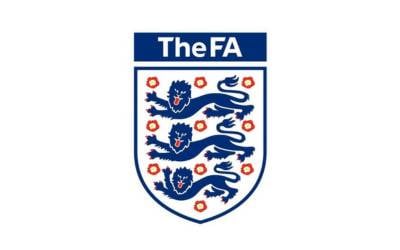
If produced and published, written reasons can be found for Appeal Board hearings by clicking *here* and selecting “County Appeal” on the “Offence Type” dropdown list. Alternatively, use this URL: https://www.thefa.com/football-rules-governance/discipline/written-reasons.
OJM Black Country FC v Midland Football League – 1 December
Appellant: Club
Charge: League Rule 8.34 – Failure to fulfil a fixture
Decision: 3-points deduction, £250 fine, game to be replayed
Result: Appeal Allowed; sanction varied – 3-points deduction quashed, remainder of decision remains as originally imposed.
Written Reasons: https://www.thefa.com/-/media/files/thefaportal/governance-docs/discipline-cases/2023/ojm-black-country-fc-v-midland-football-league---appeal-board---4-december-2023.ashx
Gareth Bowers v West Riding FA – 1 December
Appellant: Manager
Charge: FA Rule E3.1 - acted in a manner that was improper and/or brought the game into disrepute
Sanction: 3-match suspension, a £40 fine, warned as to future conduct
Result: Appeal Dismissed
Lardi FC v Hampshire FA – 13 December
Appellant: Club
Charge: FA Rule E21 - Failed to ensure spectators and/or its supporters (and anyone purporting to be its supporters or followers) conduct themselves in an orderly fashion whilst attending any match.
Sanction: a £60 fine
Result: Appeal Allowed; charge and sanction quashed.
Ashley Davies v Gloucestershire FA – 13 December
Appellant: Player (open age)
Charge: FA Rule E3 - Improper Conduct against a Match Official - (including threatening and/or
abusive language/behaviour)
Sanction: 126-days suspension, a £50 fine, to complete an education course and 7 Club penalty points.
Result: Appeal Allowed; sanction varied – touchline and ground/venue suspension removed, remainder of sanction remains as originally imposed.
Written Reasons: https://www.thefa.com/-/media/files/thefaportal/governance-docs/discipline-cases/2024/ashley-davies-v-gloucestershire-fa---appeal-board---8-january-2024.ashx
Staveley Miners Welfare FC v Northern Counties East Football League – 14 December
Appellant: Club
Charge: League Rule 8.43 – Failure to fulfil a fixture
Sanction: a £250 fine
Result: Appeal Dismissed
Wetherby Athletic Junior FC v West Riding FA – 18 December
Appellant: Club
Charge: FA Rule E20 - Failed to ensure directors, players, officials, employees, servants, representatives, conduct themselves in an orderly fashion whilst attending any Match
Sanction: a £40 fine
Result: Appeal Allowed; charge and sanction quashed.
Written Reasons: https://www.thefa.com/-/media/files/thefaportal/governance-docs/discipline-cases/2023/wetherby-athletic-fc-juniors-v-west-riding-fa---appeal-board---19-december-2023.ashx
Ciaran Gill v Hampshire FA – 19 December
Appellant: Player (open age)
Charge: FA Rule E3 - Improper Conduct - Assault or Attempted Assault on a Match Official
Sanction: 5-year suspension, to complete a face-to-face education course, 5 club penalty points
Result: Appeal Dismissed.
Lee Alder v Berks & Bucks FA – 28 December
Appellant: Player (open age)
Charge: FA Rule E3 - Improper Conduct against a Match Official (including physical
contact or attempted physical contact and threatening and/or abusive language/behaviour)
Sanction: 143-day suspension, a £75 fine, 8 club penalty points and to complete an online education course
Result: Appeal Dismissed.
Mtown Rovers FC v Berks & Bucks FA – 28 December
Appellant: Club
Charge: FA Rule E21 - Failed to ensure spectators and/or its supporters (and anyone purporting to
be its supporters or followers) conduct themselves in an orderly fashion whilst attending any Match
Sanction: a £75 fine
Result: Appeal Dismissed.
If produced and published, written reasons can be found for Appeal Board hearings by clicking *here* and selecting “County Appeal” on the “Offence Type” dropdown list. Alternatively, use this URL: https://www.thefa.com/football-rules-governance/discipline/written-reasons.
Published Friday, 12 January 2024.
A Florida State assistant football coach violated NCAA rules when he facilitated an impermissible recruiting contact between a transfer prospect and a booster, according to an agreement released by the Division I Committee on Infractions. During that contact, the booster encouraged the prospect to enroll at Florida State and offered a name, image and likeness deal as a recruiting inducement. The assistant coach then violated ethical conduct rules when he provided false or misleading information about his involvement in the arranged meeting.
The school, assistant coach and enforcement staff agreed that the violation occurred after a prospective transfer student-athlete entered the NCAA Transfer Portal and communicated with the assistant coach to arrange an official visit to Florida State. During that visit, the assistant coach transported the prospect and his parents to and from an off-campus meeting with a booster, who at the time was the chief executive officer of an NIL collective that also was a booster. The prospect and his parents stated the assistant coach informed them that they would be meeting with the booster. The coach did not stay for the meeting.
During the meeting, the booster encouraged the prospect to enroll at Florida State and offered him an NIL opportunity with the collective worth approximately $15,000 per month during his first year at the school. After the meeting, the booster contacted the prospect and the prospect's mother via text message and/or phone call. Shortly thereafter, the prospect withdrew his name from the Transfer Portal and remained at his previous school. The prospect did not enter into an agreement with the booster or receive any related compensation.
The school and enforcement staff agreed that the meeting with the booster violated several recruiting rules. Specifically, the meeting constituted an impermissible recruiting contact because boosters are not authorized recruiters and generally cannot have in-person, off-campus contact with prospects. The booster also violated recruiting rules when he initiated telephonic communication with the prospect and his mother. Additionally, the booster's proposed NIL opportunity constituted an impermissible recruiting inducement.
The school, enforcement staff and assistant coach also agreed that during the enforcement staff's investigation, the assistant coach violated unethical conduct rules when he knowingly provided false or misleading information about his knowledge of and involvement in the violations. Specifically, on two occasions, he denied facilitating the meeting between the booster, prospect and prospect's family. However, the assistant coach was truthful about aspects of the violations, including acknowledging his role in transporting the prospect and his parents to the location where they met with the booster. Although providing false and misleading information historically supports a Level I violation, the unique facts and circumstances of this case supported a Level II violation.
This case was processed through the negotiated resolution process. The process was used instead of a formal hearing or summary disposition because the university, enforcement staff and assistant coach agreed on the violations and the penalties. The Division I Committee on Infractions panel reviewed the case to determine whether the resolution was in the best interests of the Association and whether the agreed-upon penalties were reasonable. Negotiated resolutions may not be appealed and do not set case precedent for other infractions cases.
The university, enforcement staff and assistant coach used ranges identified by the Division I membership-approved infractions penalty guidelines to agree upon Level II-standard penalties for the university and Level II-aggravated penalties for the assistant coach. The decision contains the full list of penalties as approved by the Committee on Infractions, including:
- Two years of probation.
- A two-year show cause order for the assistant coach, including a suspension from the next three regular-season games, a two-week restriction on recruiting communication, and required attendance at a NCAA Regional Rules Seminar attendance.
- A restriction from off-campus recruiting during fall 2023 for the assistant coach.
- A three-year disassociation from the booster.
- A one-year disassociation from the collective.
- A $5,000 fine plus 1% of the football budget.
- A 5% reduction in football scholarships over the two-year probationary period, amounting to a total reduction of five scholarships.
- A reduction in official (paid) visits in the football program in the 2023-24 academic year by seven. The school also will not roll over six unused official visits from the 2022-23 academic year.
- A reduction in football recruiting communications for a total of six weeks during the 2023-24 and 2024-25 academic years.
- A reduction in the number of in-person recruiting days during the 2023-24 academic year by six evaluation days during fall 2023 and 18 during spring 2024.
Members of the Committee on Infractions are drawn from the NCAA membership and members of the public. The members of the panel who reviewed this case are Tricia Turley Brandenburg, chief hearing officer for the panel and executive associate athletics director and senior woman administrator at Army West Point; Stephen Madva, attorney in private practice; and Vince Nicastro, deputy commissioner and chief operating officer of the Big East Conference.
Danny Macklin has been suspended from all football and football-related activity up to and including 25 March 2024, and he has also been ordered to complete an education course.
The FA alleged that Danny Macklin breached FA Rule E3.1 by using abusive and/or insulting and/or threatening language in reference to a female member of AFC Wimbledon’s staff while he was employed as their Managing Director.
It was further alleged that this constitutes an ‘aggravated breach’, which is defined in FA Rule E3.2, as his language included a reference - whether express or implied - to gender.
Danny Macklin subsequently admitted this charge. An independent Regulatory Commission imposed his sanctions following a hearing and its written reasons can be read here.
Published Tuesday, 09 January 2024.
Published Thursday, 04 January 2024.
Published Thursday, 04 January 2024.
Agency calls on athletes, entourage, and all stakeholders to note major modification concerning tramadol
The World Anti-Doping Agency (WADA) wishes to remind stakeholders that the 2024 List of Prohibited Substances and Methods (List) and the 2024 Monitoring Program enter into force today (1 January 2024). The 2024 List was approved by WADA’s Executive Committee (ExCo) during its meeting on 22 September 2023 and was first published on 28 September 2023.
The List is one of the eight International Standards that are mandatory for all Signatories of the World Anti-Doping Code (Code). It designates what substances and methods are prohibited both in- and out-of-competition and which substances are banned in particular sports.
Major Modifications for 2024
All Major Modifications for 2024 are outlined in the 2024 Summary of Major Modifications and Explanatory Notes, including the following particular information regarding tramadol:
On 23 September 2022, the ExCo endorsed the recommendation by WADA’s List Expert Advisory Group (EAG) to prohibit the narcotic tramadol in competition, effective 1 January 2024. The delay in implementation was to ensure stakeholders had enough time to learn and adapt to this change, especially as it pertained to the education of athletes, their entourage, and medical personnel.
Tramadol has been on WADA’s Monitoring Program and data gathered through that program have indicated significant use in sports. Tramadol abuse, with its risk of physical dependence, opiate use disorder and overdoses, is of concern worldwide and has led to it being a controlled drug in many countries. Research studies funded by WADA, as referenced in the Explanatory Note, have also confirmed the potential for tramadol to enhance sports performance.
Annual List Review Process
WADA leads an annual revision process concerning the List, beginning with an initial meeting in January and concluding with the publication of the List by 1 October. This is an extensive consultation process that includes WADA’s List EAG gathering information, including the latest scientific and medical research, trends, and intelligence gathered from law enforcement and pharmaceutical companies; circulating a draft List among stakeholders; and, taking their submissions into consideration to revise the draft, followed by review by the Agency’s Health, Medical and Research (HMR) Committee. The HMR Committee then makes its recommendations to WADA’s ExCo, which approves the List during its September meeting.
For a substance or method to be added to the List, it must be determined that it meets at least two of the following three criteria:
- It has the potential to enhance or enhances sport performance
- It represents an actual or potential health risk to athletes
- It violates the spirit of sport
The full 2024 List was published on 28 September 2023, giving more than three months’ notice to athletes, their entourage, and other stakeholders, enabling them to acquaint themselves with any modifications. Ultimately, athletes are responsible for prohibited substances found in their bodies and prohibited methods found to have been used. Athletes’ entourages are also liable for Anti-Doping Rule Violations if determined to be complicit. Consequently, if there is any doubt as to the status of a substance or method, it is important that they contact their respective Anti-Doping Organizations (International Federation or National Anti-Doping Organization) for advice.
Therapeutic Use Exemption Program
It should be noted that for athletes who have a legitimate medical reason for using a prohibited substance or method that is on the List, they can apply for a Therapeutic Use Exemption (TUE) to determine whether they meet the criteria outlined in the International Standard for Therapeutic Use Exemptions (ISTUE). The TUE Program is a rigorous and necessary part of elite sport which has overwhelming acceptance from athletes, physicians, and anti-doping stakeholders.
Educational Resources
In addition to the documents linked above, WADA has provided, or will provide, a number of educational resources as part of its Code Implementation Support Program (CISP). These resources can be accessed through the links below and on the Agency’s Anti-Doping Education and Learning Platform (ADEL) and include:
Languages and Formats
The 2024 List, the 2024 Summary of Modifications and Explanatory Notes, and the 2024 Monitoring Program are available for download on WADA’s website in English, French, and Spanish. The list is also available in Arabic, German, Greek, Portuguese, and Turkish.
Stakeholders wishing to translate the List into other languages are kindly asked to signal their interest to This email address is being protected from spambots. You need JavaScript enabled to view it.. WADA will then provide the necessary files and, once the translation is finalized, will make the translated List available on the Agency’s website.
The List’s mobile-friendly digital edition is now available.
IBIA welcomes the adoption of the sports betting law by the Brazilian Chamber of Deputies. The law introduces an effective regulatory and licensing system for operators in Brazil for both sports betting and online casinos. It also includes a range of integrity measures to strengthen the fight against sports betting related match-fixing.
The law includes a requirement that sports betting operators are part of an international monitoring body; a provision that will help to ensure proper mechanisms are put in place to help protect operators, their customers, as well as sports, from potential fraud and manipulation. In addition, the ability for betting operators to suspend payments of bets for matches that are under investigation for potential corruption is important in protecting operators and deterring sports betting related fraud.
Khalid Ali, CEO of IBIA, said: ‘This is an historic moment for sports betting in Brazil and is a major step forward in the fight against match-fixing. IBIA welcomes the adoption of specific betting integrity provisions in the law, which the association has been campaigning for since discussions on regulating sports betting began in 2018. A number of Brazilian market focused operators have already joined IBIA, and we look forward to engaging with other operators intent on offering well-protected sports betting products to Brazilian consumers via IBIA’s world leading integrity network.’
IBIA is run by operators for operators, with its monitoring and alert network harnessing the collective resources and expertise of many of the world’s largest regulated sports betting companies. It monitors approximately US$150bn in betting transactions on approximately 650,000 competitive sporting events globally, making it the largest monitor of its type in the world. According to H2 Gambling Capital – the leading independent authority on global gambling market data – IBIA members already account for over 60% of the remote gambling market in Brazil.
IBIA’s international monitoring and alert network will provide accurate and detailed intelligence on suspicious betting activity on Brazilian sport to betting regulators, law enforcement and sports governing bodies.
Khalid Ali stated: “Although the new law is a very important milestone in the fight against match-fixing, there is no room for complacency. We are committed to working more closely and sharing our expertise with the Brazilian regulatory authorities on the implementing regulation on integrity, as well as with sports and law enforcement to ensure we more effectively detect, deter and sanction sports betting related match-fixing and fraud.”
Opening markets to licensed sports betting operators is key to protecting consumers and the integrity of sporting competitions from sports betting related match-fixing. Regulated sports betting markets channel consumers away from the unregulated markets where most of the issues with match-fixing and corruption arise.
Khalid Ali continued: “By opening-up the market to licensed sports betting operators Brazil is sending a very important message to other markets in Latin America that a dynamic and competitive regulated sports betting framework with strong integrity provisions is essential to the fight against sports betting related match-fixing.”
Sports betting exists within a highly competitive international market and an overly burdensome framework of regulation and taxation will have the counterproductive, and unintended, consequence of driving sports betting customers into unregulated markets, reducing tax revenues and increasing the risk of corruption and match fixing.
Therefore, whilst IBIA welcomes the fact that the Chamber of Deputies has resisted the temptation to impose higher levels of gambling taxation, the impact of the overall tax burden and the substantial cost of the licencing fee, which remains BRL30m, may deter investments in Brazil.
EU Athletes is pleased with today’s decision of the Court of Justice of the European Union delivered in Case C-124/21 P International Skating Union v Commission which dismisses the appeal filed by the ISU and upholds the cross-appeal from Mark Tuitert, Niels Kerstholt and EU Athletes.
The Court of Justice affirmed that the eligibility rules of the International Skating Union (ISU), granting its authority to approve international skating events and penalise athletes participating in unauthorised competitions, violate EU law. Such regulations provide the ISU with an unfair advantage over its competitors and result in adverse outcomes for athletes.
Importantly, the Court of Justice maintains that the Commission was accurate in challenging the arbitration rules that limit skaters’ access to court proceedings.
This case holds immense significance for every athlete and player as central to its essence lies athletes’ rights to engage in competition and leverage their commercial opportunities. It also addresses athletes’ access to justice and their entitlement to protection under EU laws as citizens and workers.
EU Athletes has been supporting Dutch speed skaters Mark Tuitert and Niels Kerstholt since their initial complaint in 2014, through the #ChanceToCompete campaign and as the interveners throughout the procedure. We extend our congratulations to Mark and Niels for embarking on this challenging journey and for making an immense contribution to enhancing the situation of athletes.
We would like to express gratitude to the legal experts: Ben van Rompuy and Antoine Duval as well as to Bas Braeken, Jade Versteeg and Timo Hieselaar from Bureau Brandeis.
Natalia Orive, the President of EU Athletes, said: “I am proud of our involvement in this landmark case as it contributes to EU Athletes mission of protecting and advancing the rights and interests of the players. It is important to reiterate that the sport organisations cannot abuse their position at the expense of athletes.”
Paulina Tomczyk, the General Secretary of EU Athletes, added: “Today’s decision is a great win for Mark and Niels, but also for the player association movement that has been actively supporting their fight for almost a decade. I believe it is a step in the right direction to ensure good governance and respect of athlete’s rights in sport.”
TO THE MEMBER ASSOCIATIONS OF FIFA
Circular no. 1868
Zurich, 19 December 2023
Futsal Laws of the Game 2023-24
Dear Sir or Madam,
FIFA is pleased to announce that the FIFA Council has approved several updates to the Futsal Laws of the Game. These encompass futsal-specific adjustments while also aligning the Laws with recent modifications introduced in football.
Enclosed, you will find both an overview of the main amendments and the complete Futsal Laws of the Game 2023-24. The full Futsal Laws of the Game 2023-24 is also readily accessible on FIFA.com for your convenience.
If you have any inquiries or require further clarification, please don't hesitate to reach out to Dominic Chielens, Senior Refereeing Manager, at the FIFA Refereeing Subdivision (This email address is being protected from spambots. You need JavaScript enabled to view it.).
Yours faithfully,
FIFA
The full report can be accessed here.
Published Tuesday, 19 December 2023.
